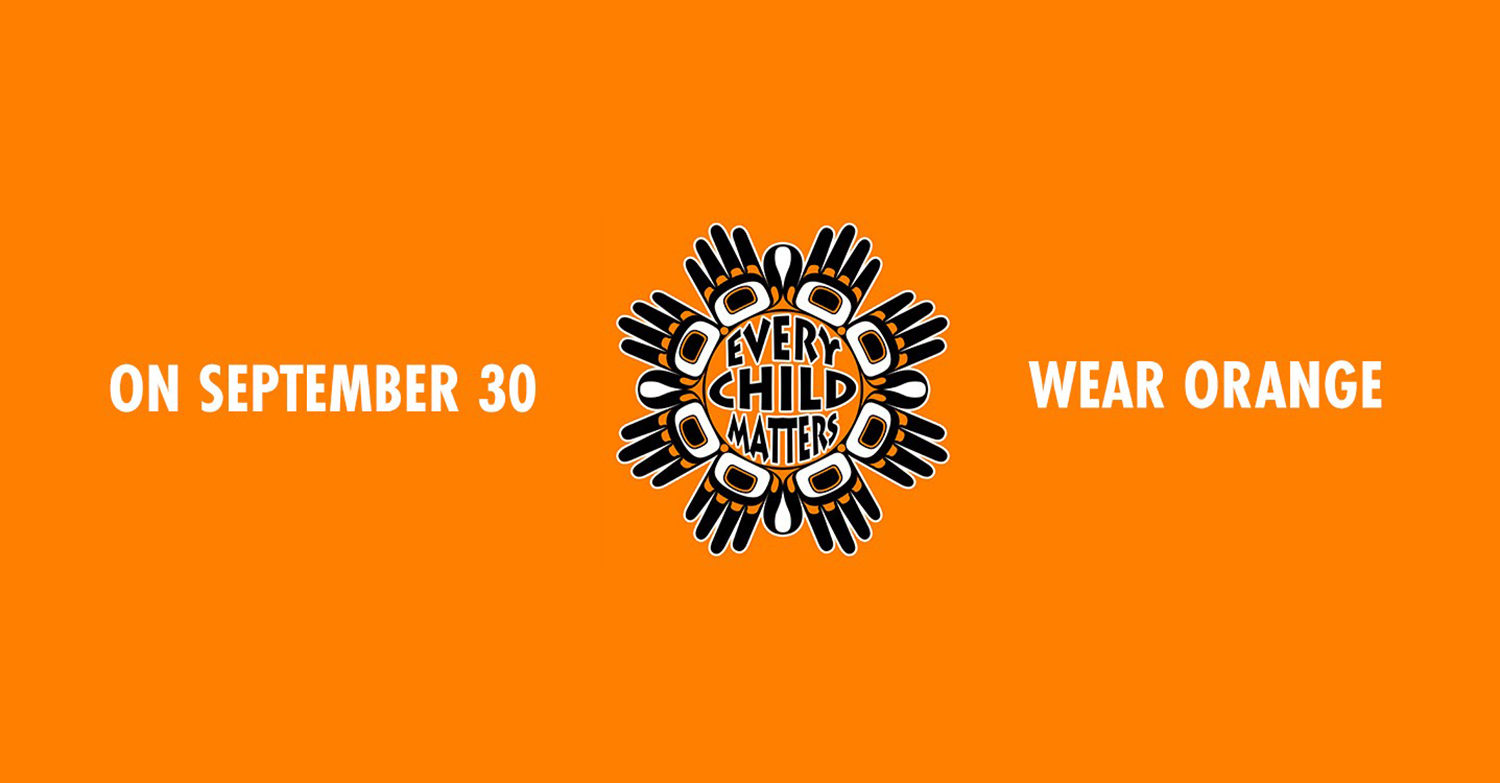
By Rev. Chris Brouillard-Coyle
SEPTEMBER 30 is the National Day for Truth and Reconciliation. The day serves as a reminder of the intergenerational and communal trauma and struggles caused by Residential Schools.
The numbers of those who didn’t return home are staggering. The challenges faced by those who did remain. There is no one among the First Nations, Métis, and Inuit (FNMI) peoples who hasn’t been touched by this tragedy. It remains important for settlers to continually confront these truths and seek paths to reconciliation.
National Day for Truth and Reconciliation is also Orange Shirt Day, a day in which all people are encouraged to wear orange, especially orange shirts purchased from Indigenous artists and organizations that remind us “Every Child Matters”.
This symbol connects to the story of Phyllis Webstad whose grandmother gave her an orange shirt in celebration of her first day of school.
Sadly, as a student at a residential school, Phyllis lost that shirt on arrival. Her story, widely available in bookstores, and the symbol of the orange shirt provides an important reminder of the violence of residential schools and an invitation to know better and do better.
What does it look like for settlers to know better and do better?
For starters, we can honour the National Day for Truth and Reconciliation, wear orange, and use the time to remember the injustices that undermine the dignity of the FNMI peoples historically and in ongoing ways today.
We can learn by reading the 94 calls to action. Calls 58 to 61 are directed to Churches who had a hand in the violence of residential schools. This includes call 59:
“We call upon church parties to the Settlement Agreement to develop ongoing education strategies to ensure that their respective congregations learn about their church's role in colonization, the history and legacy of residential schools, and why apologies to former residential school students, their families, and communities were necessary.”
It is important to recognize that this work is for congregations. We cannot continually ask FNMI peoples to engage in emotional labour for our benefit.
We can draw from existing resources to challenge our perspectives and biases. Hosting the Kairos Blanket Exercise or Alongside Hope Mapping Exercise are two powerful tools. There are also a multitude of books that can support independent reading and book study opportunities.
Easily available and informative books include:
-
“21 Things You May Not Know About the Indian Act: Helping Canadians Make Reconciliation with Indigenous Peoples a Reality” by Bob Joseph
-
“Truth Telling: Seven Conversations about Indigenous Life in Canada” by Michelle Good
-
“Highway of Tears: A True Story of Racism, Indifference and the Pursuit of Justice for Missing and Murdered Indigenous Women and Girls” by Jessica McDiarmid
-
“From the Ashes: My Story of Being Métis, Homeless, and Finding My Way” by Jesse Thistle
-
“The Reason You Walk: A Memoir” by Wab Kinew
We know that inequity continues in relation to FNMI peoples in Canada. We know discrimination continues. We know challenges continue.
National Day for Truth and Reconciliation offers one day in the year to challenge settler Canadians to know better and do better. Our awareness and efforts should not be contained to this day alone.
How will we continue to humbly learn, challenge problematic biases and norms, and ensure that we, and society as a whole, respect the dignity of FNMI peoples throughout the year?
Rev. Chris Brouillard-Coyle is a co-chair of SEJH.